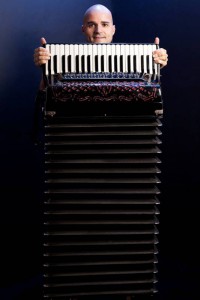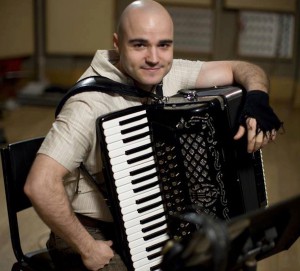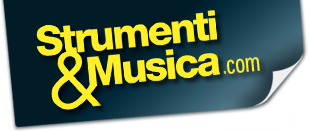There are some musicians who always get classified in the “beyond” categories in the magazine polls. They are usually musicians that are in such a unique area of music that there are few peers to make a single category for their respective instrumental talent and focus. Victor Prieto belongs to that list. Grammy Nominee, Victor Prieto is hailed by The New York Times as “… a fiendishly skilled accordionist and composer” and by The All About Jazz as “… one of the best World music and Jazz accordionists now days”. He has changed the way in which musicians and spectators view accordion by revolutionizing both technique and sound (Chord approach on both hands). His love for the traditional Galician music and classical education enriches his compositions with explosive rhythm and colors uniquely combining Galician roots, Celtic, Brazilian, Jazz, Tango, and Classical music. Victor continues collaborating on world stages with Yo-Yo Ma (Songs of Joy and Peace, Sony BMG Masterworks. “2010 Grammy Winning Album”), Arturo O’Farrill Latin Jazz Orchestra, Cristina Pato, The Maria Schneider Orchestra, Emilio Solla (“Second Half” 2014 Grammy Nominated album) Paquito D’Rivera, Chris Cheek, Christian Howes Group. He teaches Master Classes in US Berklee College of Music, “Playing outside the Box”, Spain, Italy, Portugal and has headed the jazz accordion studies at the Brooklyn Conservatory in New York. Some of Victor’s awards and prizes are: The Creative Performer award from the Spanish Association of Artists and Performers and the first prize CMZK’s Concourse of Composition. Victor Prieto holds a Degree in Jazz accordion performance from Berklee College of Music, where he studied with a full schoolarship and a Diploma in classical accordion from Ouresnse – Spain Conservatory. He is the only one to date to specialize in jazz accordion studies, Berklee College of Music does not offer any classes focusing on accordion. Uninhibited by these circumstances Victor created his own study program applying the expertise offered by educators at Berklee to the accordion.
 Sure one of the more attractive musical figure now days, you are an accordionist that bring to his instrument jazz, and teach to others how to do it. Was it difficult move the theoretical notions to an instrument that haven’t got its own method?
Sure one of the more attractive musical figure now days, you are an accordionist that bring to his instrument jazz, and teach to others how to do it. Was it difficult move the theoretical notions to an instrument that haven’t got its own method?
I would like to beginning with this: Jazz is a style of music that embrace many others. When we listen to the radio now days, most of the songs that are being broadcasted have modern harmony, that modern harmony comes from Jazz.
When I started to study jazz with the accordion, the biggest obstacle, that I encountered, was not the information or theory… but the “teachers” themselves (not all of them), the lack of respect for the accordion, the lack of imagination and understanding toward instrument. It was a disaster!
Once you find the right teacher, you start to understand how to apply all the information to the accordion and the way you have to work to reach your goals.
You have studied in Berklee College with other musicians. How did they influence you, and in what in particular?
Berklee College for me was on the best experience that I had till now along with living in New York City for more than 15 years and I perform with the best musicians of the international scene.
I went to Berklee with a Full Scholar Ship to study jazz performances, but I had a “huge problem”. Berklee does not offer accordion studies of any kind! So from the beginning they wanted me to play piano or hammond B3, not accordion, it was a continues battle that lasted for 2 years, till they realized my musical potential and also that it was going to be extremely difficult and impossible to make me drop the accordion. So in 2002 I became the first accordionist in the history of Berklee College of Music to ever graduated in accordion Jazz performances. “The Accordion won the battle”
I had many great teachers there. The ones that changed my concepts and vision are bassist Oscar Stagnaro and pianist Joanne Bracken.
You have also a classical degree from Ourense-Spain Conservatory. Was it useful for you? What do you think it helped you mostly in playing accordion?
Of course, Classical Music is a must have for any instrumentalist, the better technique, understanding of your instrument the easier will be to approach other styles of music. Bach, Mozart, Scarlatti have help me tremendously to understand counterpoint also to develop counterpoint improvisation.
Accordion is still considered like a folk instrument. Is it like that also in USA? How is the general situation for accordion and accordionists there?
Yes, the accordion in USA is considered a folk instrument, even more than in Europe, but on the other hand there is a huge interest in jazz – World Music accordion.
The situation for the accordionists could not be better, the accordion has grown so much in this past decade, and you still see more a more people picking up the accordion, you can hear it on the radio and TV… I see a great future for the instrument in America.
What are your best goals like performer?
I want to keep composing, recording, getting involved in new projects and keep developing everything that I have been doing till now, I want to continue touring and recording and something really important, I also want to keep sharing my ideas with all the musician out there, even if they do not play accordion.
November 4th, 2015 I am teaching a clinic at Berklee College of Music for musicians that do not play accordion.
What are the differences between playing jazz and teach it? How do you teach something that asks to players their own ideas and personality, moreover a great preparation and knowledge of the harmony?
The difference are enormous. You can be an amazing jazz performer and a lousy teacher. We all know this!
Jazz is a vocabulary and new language that you have to speak and you have to learn. Once you have learned some basic vocabulary, then is when you can add your own ideas and creativity.
I believe, any one that wants to study jazz gotta have a good understanding of modern harmony or jazz harmony… Do it in the right way so you do not waste your time… there are no magical ways or books. Go to a jazz school and begin with harmony, improvisation, ensembles, ear training, rhythm, styles…
 You’ll be in Europe next year for some masterclasses. How will they be? About what will they focus on?
You’ll be in Europe next year for some masterclasses. How will they be? About what will they focus on?
The classes will be held in Ourense – Spain and they will be taught in English and Spanish.
Only 8 students per group, this will maximized the time I dedicate to each student.
Duration: 2 days – 10 hours – 5 hours per day; 3 hours during the morning, lunch break, 2 hours during the afternoon. On the second day all the students will play with a rhythm section, bass and drums.
Transportation will be provided to all the students from Hotel to the class rooms.
The classes will focus:
- Modes, scales, patterns.
- Improvisation and phrasing in different Styles : Bebop, Blues, Jazz, Brazilian, Traditional tango, New tango (Astor Piazzola), Latin jazz, Funk and Counterpoint improvisation using 3 voices or more
- How to use the registers on both hands of the accordion to create different textures and colors
- Chords formation, how to build the chords. Open and closed position, poly chords, upper structures… We will also see, my technique “Chord approach on both hands”. This is an advanced technique for comping and it requires you to have some knowledge in modern harmony
- How to comp and different ways of comping depending on the style you are playing
- I will also give you an easy way to comp, you will be able to do it the same day of the masterclass
- I will show you the accordion in different musical situations
- How to play solo, trio (rhythm section), in duo (sax, piano, guitar, voice)
The accordion has to interact in a completely different way depending on the instrument or instruments that is playing with.
This is a vast quantity of material…
All of this information will change the concept and the way you see music on the accordion, as it had for many accordionists already.
The MOST IMPORTANT goal of my classes is to help you understand how to apply this info to the accordion, so you can keep studying with different teachers regardless the instrument that they play. (pianist, guitarist).
For more info about: masterclass@victorprieto.net https://vimeo.com/137056177
What is, in your opinion, the most thing to be a good jazz player?
I do not know, there are many great jazz players out there that are fantastic. The most important thing is to be truthful with yourself.
A very important aspect of jazz is the communication; in fact, you are involved also in some project with other musicians. Tell us something about.
Once I graduated at Berklee in 2002 I move to NYC where I started to develop my musical ideas even more.
I have been in so many musical situations performing a big variety of styles. I have learned so much from that! Actually I have become the musician I am today thanks to all those situations, and all these situations teach you to interact, communicate, and listen. This is so important to become a great performer.
One of the projects, I am very proud of, is my Trio, I apply these 3 important points to this formation: interact, communicate and listen. The results is a high communication and interplay between the musicians where no instrument is more important than the other.
As always, the last question… Why the music for Victor Prieto?
Why do you asked that, is there any thing better than the music?
For more info about Victor Prieto you can visit the website: www.victorprieto.net
Questo post è disponibile anche in: Italian

 English
English Italiano
Italiano 





Leave a comment
You must be logged in to post a comment.